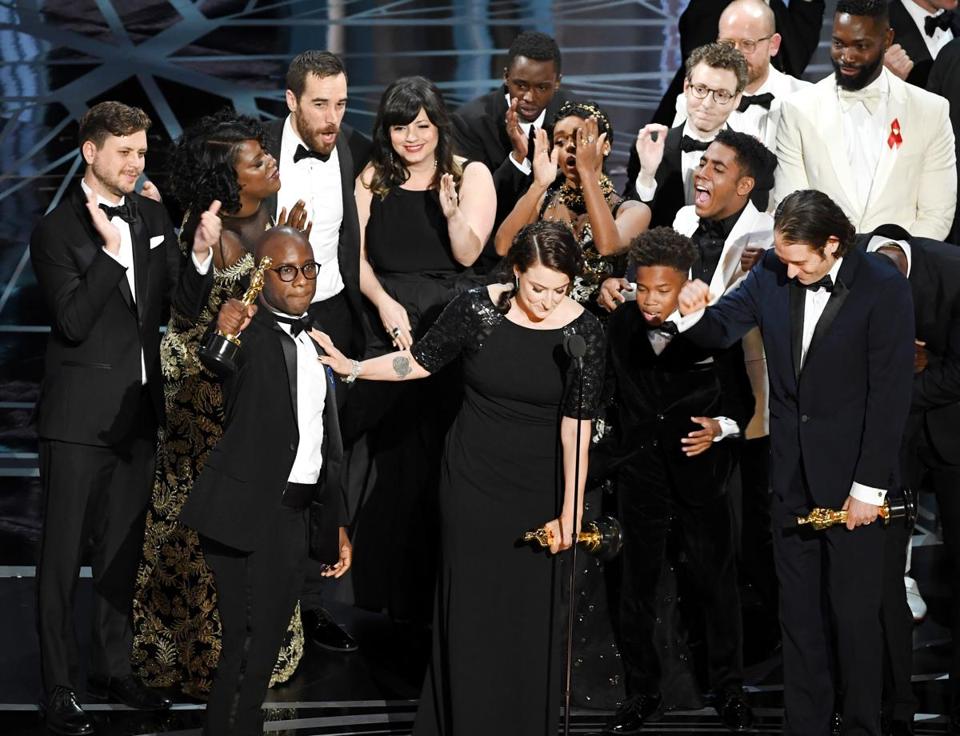When Jordan Horowitz declared that Moonlight had in fact won ‘Best Picture’ instead of La La Land, as first announced, he used the phrase: ‘This is not a joke.’ But it is. Hollywood and its award ceremonies are a monumental joke.
When La La Land was mistakenly given the award it was plausible, it was expected that this all-singing, all-dancing testimony to art, love and dreams would win the crowning award at the Oscars. This token assumption is centred in whiteness, heterosexuality, binary and cisgender; the Academy Awards is a competition of taste and Hollywood’s taste is for actors and characters who are white, straight and ‘normally’ gendered so nobody flinched when La La Land, befitting this criteria perfectly, swooped in and won. The error of Warren Beatty and Faye Dunaway may have made the headlines but it is the fact that Moonlight needed to win that is overlooked.
Both films are incredible pieces of art with vastly differing music, cinematography, direction and content, and La La Land’s loss does not make it any less of an artwork. La La Land is a film about loving hard, living for passion and following dreams, but Moonlight creates an awareness that this is something that needs to be available to people of colour, the LGBT+ community and people from the ghetto.
In her review for The Times Camilla Long asked if Moonlight was relevant, and it is this sort of reception that does not hold Hollywood accountable. La La Land is an overamplified version of what Hollywood wants to see: it ignores the African-American roots of the jazz upon which it thrives and it uses nostalgic motifs of old Hollywood that hark back to an era of romanticised whiteness and heterosexuality. This is relevant to whom? Our grandparents?
After an awards season characterised by the idealistically inspirational speeches of Meryl Streep at the Golden Globes and Stranger Things’ David K. Harbour at the SAG Awards, the success of Moonlight, alongside the shockingly un-shocking Oscar for Best Supporting Actor won by Mahershala Ali (the first Muslim to ever win an Academy Award), Hollywood has finally started to reflect the world in which it lives. In the current political climate and tyrannical actions of Trump, Hollywood, its actors, and its films are finally beginning to represent and credit those whose voice is unarguably most compromised.
Hollywood has an opportunity – the success of Moonlight has provided a starting block for change and it is now time for the industry to ask the question that echoes throughout the film: Who is you? Is Hollywood going to treat minorities and their representations like they are a part of its business? Or are they going to prioritise whiteness, straightness, binary and cis? Are they going to continue to celebrate the Ancient Ones, the Carols and the Danish Girls that give visibility in the terms of Hollywood taste? Or are we going to complacently let the La La Lands win?
Rose Crees
(Image courtesy of Getty)

